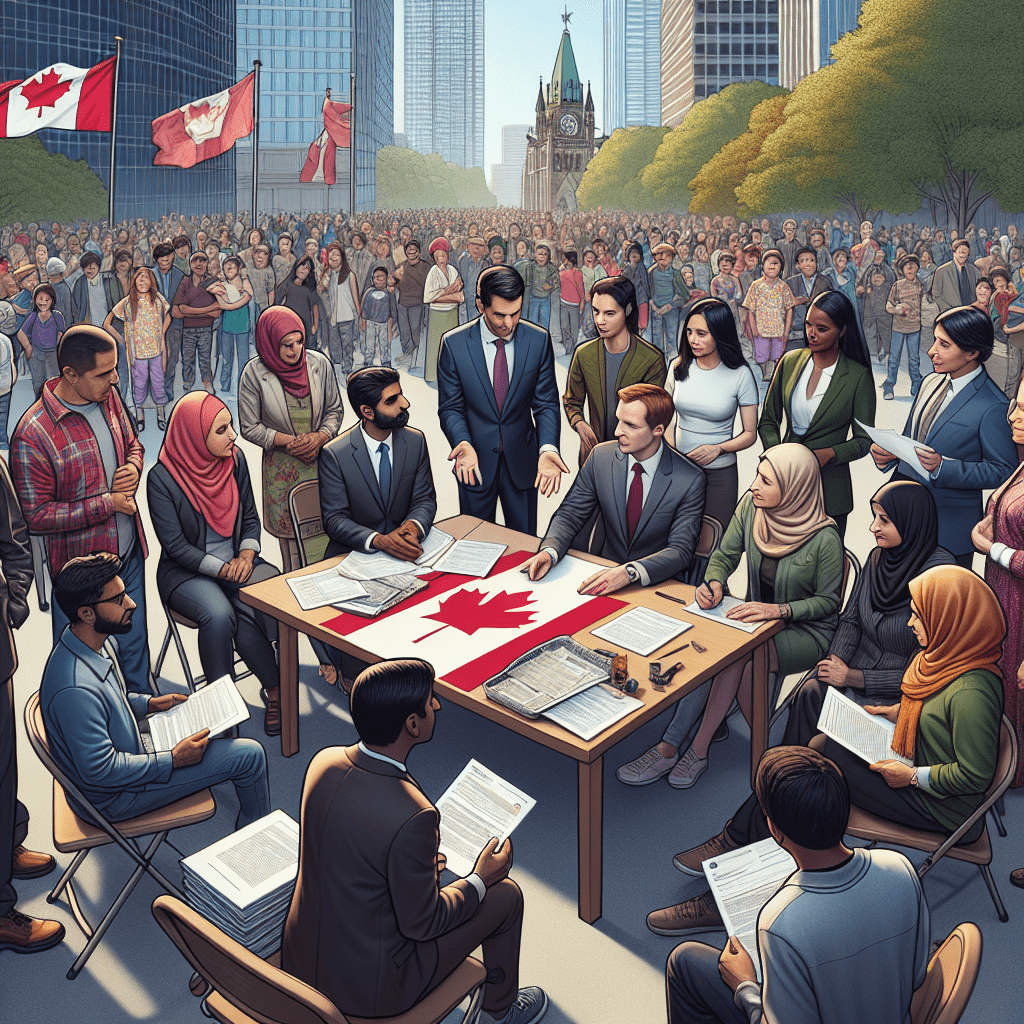How to Sponsor Your Spouse for Canadian PR: A Step-by-Step Guide

Navigating the Complexities of Sponsoring a Loved One for Canadian Immigration
Sponsoring a loved one for Canadian immigration is a significant step, offering increased mobility and the potential for work permits. However, the process can be intricate, requiring careful navigation through various application classes and documentation. Here’s a concise guide to understanding the sponsorship process, along with insightful analysis on its implications for families and individuals looking to reunite in Canada.
Key Steps in the Sponsorship Process
-
Eligibility Check: First, confirm that both you (the sponsor) and your loved one (the sponsored) meet the eligibility criteria. This initial step is crucial in determining the class of sponsorship you should apply under.
-
Choosing Representation: Decide whether to handle the application yourself or engage a representative. While it’s possible to manage the process independently, a qualified representative can simplify the journey, helping you avoid common pitfalls and ensuring accurate submission.
-
Selecting the Right Class of Sponsorship: There are two main classes under which you can apply:
- Family Class: Suitable for sponsors and applicants living outside Canada. This option allows for appeals if the application is denied.
- Spouse or Common-Law Partner in Canada Class: Designed for couples residing together in Canada. However, it lacks an appeal option if the application is refused.
-
Document Preparation: Gather all required documents meticulously. This may include identity proofs, relationship evidence, and any additional documents based on the applicant’s circumstances. Utilizing the IRCC’s tools can help streamline this process.
-
Application Submission: Complete and submit your application online, ensuring that all forms are accurately filled out and fees are paid. Remember to keep a record of your payment, as it will be necessary for your application tracking.
- Post-Submission Requirements: Be prepared to respond promptly to any requests for additional documentation, such as medical exams or police certificates.
Insightful Analysis
The sponsorship process is not merely a bureaucratic hurdle; it embodies the emotional and practical aspects of family reunification. For many, immigration to Canada represents hope for a better life and the chance to build a future together. However, the complexities of the application can create barriers that exacerbate family separation.
The choice between inland and outland sponsorship reflects broader immigration trends and policy implications. For instance, the lack of an appeal option in the inland class may disproportionately affect couples who find themselves in precarious situations, where even minor application errors could lead to significant consequences.
Additionally, the requirement for thorough documentation serves as both a safeguard against fraud and a potential obstacle for genuine applicants. The emphasis on complete and truthful information underscores the importance of transparency in immigration processes. Misrepresentation, even if unintentional, can have dire ramifications, including revocation of permanent resident status.
A Unique Perspective
As Canada continues to position itself as a welcoming nation for immigrants, it is essential to balance security with compassion. Streamlining the sponsorship process could alleviate some of the burdens faced by families while maintaining the integrity of immigration policies.
Moreover, increased awareness and access to resources for potential sponsors can empower individuals to navigate the system with confidence. Community workshops or online resources tailored to the intricacies of family sponsorship could serve as invaluable tools for those looking to bring their loved ones to Canada.
In conclusion, while the journey of sponsoring a loved one for Canadian immigration is fraught with challenges, understanding the process and its implications can lead to successful outcomes. As Canada embraces its role as a multicultural society, ensuring that families can reunite and thrive should remain a priority in immigration policy.



